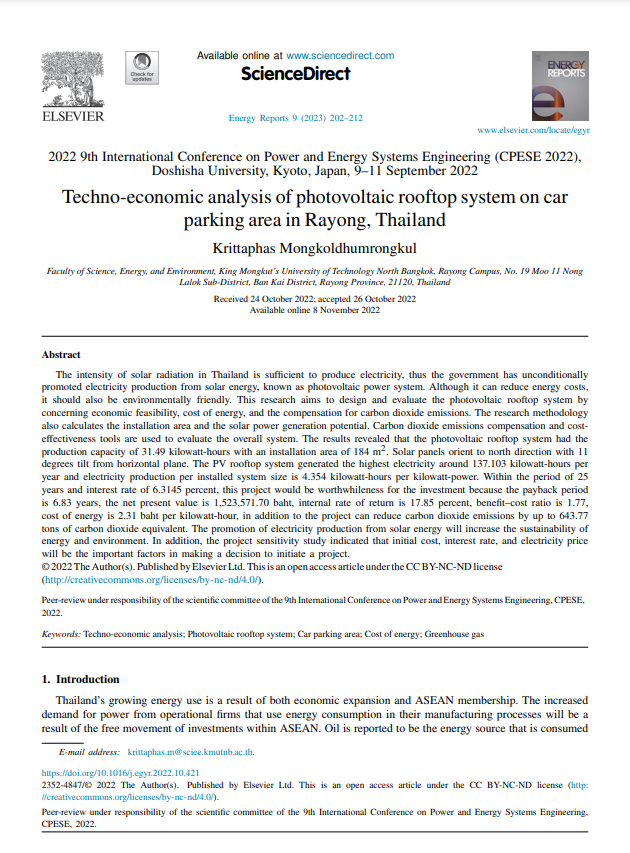
Keyword(s)
Author(s)
Krittaphas Mongkoldhumrongkul
Country(ies)
Publisher
Published Date
Access
DOI
Faculty of Science, Energy, and Environment, King Mongkut’s University of Technology North Bangkok, Rayong Campus, No. 19 Moo 11 Nong Lalok Sub-District, Ban Kai District, Rayong Province, 21120, Thailand
The intensity of solar radiation in Thailand is sufficient to produce electricity, thus the government has unconditionally promoted electricity production from solar energy, known as photovoltaic power system. Although it can reduce energy costs, it should also be environmentally friendly. This research aims to design and evaluate the photovoltaic rooftop system by concerning economic feasibility, cost of energy, and the compensation for carbon dioxide emissions. The research methodology also calculates the installation area and the solar power generation potential. Carbon dioxide emissions compensation and cost-effectiveness tools are used to evaluate the overall system. The results revealed that the photovoltaic rooftop system had the production capacity of 31.49 kilowatt-hours with an installation area of 184 m2. Solar panels orient to north direction with 11 degrees tilt from horizontal plane. The PV rooftop system generated the highest electricity around 137.103 kilowatt-hours per year and electricity production per installed system size is 4.354 kilowatt-hours per kilowatt-power. Within the period of 25 years and interest rate of 6.3145 percent, this project would be worthwhileness for the investment because the payback period is 6.83 years, the net present value is 1,523,571.70 baht, internal rate of return is 17.85 percent, benefit–cost ratio is 1.77, cost of energy is 2.31 baht per kilowatt-hour, in addition to the project can reduce carbon dioxide emissions by up to 643.77 tons of carbon dioxide equivalent. The promotion of electricity production from solar energy will increase the sustainability of energy and environment. In addition, the project sensitivity study indicated that initial cost, interest rate, and electricity price will be the important factors in making a decision to initiate a project.